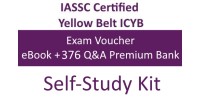Course Description
Objectives
All our courses have a strong practical component. The theoretical part is constantly complemented by simulations on real IT problems.
Students who complete this course will have learned:
- reduces risk to organisations by helping to assess if project is feasible before doing all the work,
- project cost reduction: fewer project changes resulting from stakeholders feedback,
- increase the benefits obtained by products, processes and services created by project management processes preceded by Design Thinking,
- reduce the feeling of uncertainty about the duration and level of people's involvement in the Design Thinking process,
- enable the incorporation of Design Thinking into the routine activity of projects,
- prepare employees for effective work during Design Thinking workshops
- increase the possibility of designing a good Solution.
At the end of each section of the course, there will be a hands-on exercise to fix the concepts just explained and become familiar with the exam questions.
This course leads to the DT Method Foundation certification exam session, the passing of which provides an entry-level professional qualification in Design Thiniking and allows you to continue on to more advanced courses.
Who it is addressed to
Individuals from several key disciplines may be interested in the Design Thinking Methodology:
- Project Managers
- Change Agents
- Product Developers
- Facilitators
- SCRUM Masters
- Product Owners
Contents of the DT Method Foundation course
Design Thinking combines the elements of three pillars to form the DTMethod®: DTModel, DTTools and DTRules & Roles.
DTRules & Roles incorporates the people centred approach and human-centred design in a structured ecosystem which helps to follow the process described by DTModel. It covers a variety of topics including teams, individuals, roles and how they interact using an active and iterative approach to apply the DTMethod.
DTModel explores in depth the three phases of the design process; Exploration, Creative and Construction. This is an crucial part of the process based on an iterative theory which allows for the structured design of a solution.
DTTools delves deep into the mentality of a user, to use a variety of tools to understand who they are and use this knowledge to create a series of user stories and needs which drive product and project functionality.
Trainer
BITIL.COM lecturers are accredited (Accredited Trainer) by the international training body to teach and supervise exams; specialists in Design Thinking, they are professionals with many years of experience in best practice adoption projects in medium and large Organization, able to transfer a software vendor-independent and totally business-oriented implementation approach.
This DT Method® course is offered by BITIL.COM ATO of APMG.







